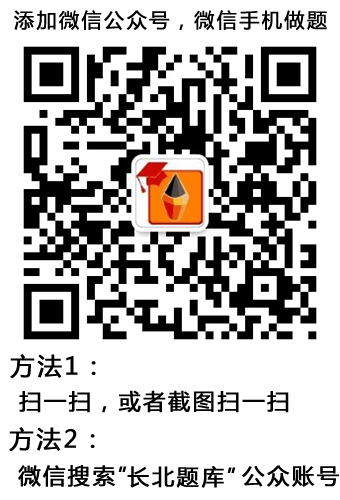- [材料题]
Passage 2
The first time I que8tioned the conventional wisdom on the nature of a healthy diet,I was in my salad days,almost 40 years ago,and the subject was salt. Researchers were claiming that salt supple mentation was unnecessary after strenuous exercise,and this advice was being passed on by health reporters. All I knew was that I had played high school football in suburban Maryland,sweating profusely
through double sessions in the swamplike 90-degree days of August. Without salt pills,l could't make it throu8h a two-hour practice;I couldn't walk across the parking lot afterward without cramping.
While sports nutritionists have since come around to recommend that we should indeed replenish salt when we sweat it out in physical activity,the message that we should avoid salt at all other times remains strong Salt consumption is said to raise blood pressure,cause hypertension and increase the risk of premature death. This is why the Department of Agriculture's dietary guidelines still consider
salt Public Enemy No. I ,coming before fats,su8;ars and alcohol. It's why the director of the Centers for
Disease Control and Prevention has suggested that reducing salt consumption is as critical to 1ong-term health as quitting cigarettes.
And yet,this eat-less-salt argument has been surprisingly controversial-and difficult to defend
Not because the food industry opposes it,but because the actual evidence to support it has always been so weak.
When I spent the better part of a year researching the state of the salt science back in 1998-al—ready a quarter century into the eat-less-salt recommendations-journal editors and public health administrators were still remarkably candid in their assessment of how flimsy the evidence was implicating salt as the cause of hypertension.
While,back then,the evidence merely failed to demonstrate that salt was harmful,tbe evidence from studies publishes over the past two years actually suggests that restricting how much salt we eat can increase our likelihood of dying prematurely. Put simply,the possibility has been raised that if we were to eat as little salt as the U. S. D. A. and the C. D. C. recommend,we'd be harming rather than helping ourselves.
Why have we been told that salt is so deadly? Well,the advice has always sounded reasonable. It has what nutritionists like to call " biological plausibility. " Eat more salt and your body retains water to maintain a stable concentration of sodium in your blood. This is why eating salty food tends to make us thirsty:we drink more;we retain water. The result can be a temporary increase in blood pressur,
which will persist until our kidneys eliminate hoth salt and water.
The scientific question is whether this temporary phenomenon translates to chronic problems: if we eat too much salt for years,does it raise our blood pressure,cause hypertension,then strokes,and then kill us prematurely:l It makes sense,but it's only a hypothesis. The reason scientists do experiments is to find out if hypotheses are true.
The N. I. H. has spent enormous sums of money on studies to test the hypothesis,and those studies have singularly failed to make the evidence any more conclusive.
With nearly everyone focused on the supposed benefits of salt restriction,little research was done
to look at the potential dangers. But four years ago,ltalian researchers began publishing the results from a series of clinical trials,all of which reported that,among patients with heart failure,reducing salt consumption increased the risk of death.
- 多项选择题1.Salt pills seem to be a kind of substance which _ .
A、improves one's performance in sports competition
B、 provides one with necessary salt supplementation
C、 prevents one from being addicted to salt
D、 provide8 one with extra energy
关注下方微信公众号,搜题查看答案

- 多项选择题2.According to the passage,when were people recommended to eat less salt?
A、 Around the early 1990s.
B、 Around the early 1980s.
C、 Around the early 1970s.
D、 Around the early 1960s.
关注下方微信公众号,搜题查看答案

- 多项选择题3.According to the author,eating more salt _ .
A、 has short term effect upon people's blood pressure
B、 has lonll; term effect upon people's blood pressure
C、 has negative effect upon people's health
D、 has no effect upon people's health
关注下方微信公众号,搜题查看答案

- 多项选择题4.What the passage tries to tell the reader is that _ .
A、 food industry misled people about salt consumption
B、 strict salt consumption is necessary for people's health
C、 salt consumption has no direct impact upon people's health
D、 the suggestion of strict salt corisumption might be misleading
关注下方微信公众号,搜题查看答案

- 多项选择题5.lt can be inferred that the author is -'
A、 supportive of the eat-less-salt campaign
B、 suspicious of the eat-less-salt argument
C、 sarcastic of the eat-less-salt argument
D、 neutral of the eat-less-salt argument
关注下方微信公众号,搜题查看答案

- 护患冲突(所属章节:第四章 ,难度:3)
- 运用现代医学技术,不通过两性结合,而进行
- 某生化指标在人群中呈正态分布,制定其参考
- 铸造支架前后腭杆之间的距离应为A、8mm
- 脓肿在哪种脊柱结核中出现的概率最多A、腰
- 咀嚼器官不平衡退化的顺序为A、牙>骨>肌
- 缺铁性贫血与营养性贫血易发病的年龄是(
- 婴儿湿疮好发于哪个部位A、头面部B、泛发
- 胆碱酯类M受体激动剂的构效关系研究,叙述
- 钝挫伤的常见原因?有何特殊性? ( 难度
- 不属于周围血管征的是A、毛细血管搏动征B
- 禁止销售含有( )的食用动物产品。A
- 1、患者应考虑的诊断是2、此时应做哪些检
- 赛前状态,根据其生理反应可表现为(
- 筒箭毒可阻断乙酰胆碱与N2受体结合,故可
- 采用银盐法测定食品中的总砷时,需要使用乙
- 治疗水湿内盛,膀胱气化不利的最佳方剂是A
- 随着对外开放和出口药品的需要,我国于何时
- 关于中成药的包装,下列说法错误的是(
- 先在手足生疗或皮肤缺损处出现红肿热痛,继